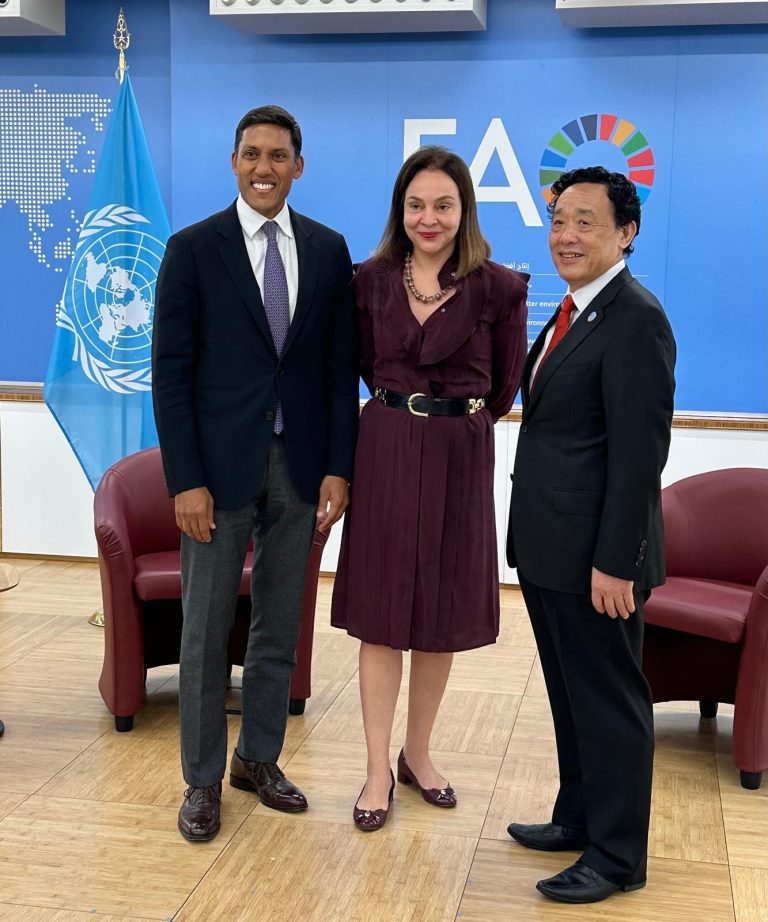In a groundbreaking move, The Rockefeller Foundation has become the first philanthropic organisation to join the Global Alliance Against Hunger and Poverty (Global Alliance). This announcement was made at a significant event featuring President Rajiv Shah, Brazilian Ambassador to the Rome-based Agencies Carla Barroso Carneiro, and FAO Director-General QU Dongyu. The Global Alliance, a key initiative of Brazil’s G20 presidency, seeks to rapidly mobilise resources for impactful programmes that address hunger and poverty, which are critical Sustainable Development Goals (SDGs) currently lagging behind.
A Commitment to School Meal Programmes
As part of its membership, The Rockefeller Foundation is pledging both financial resources and expertise to support member nations in expanding their school meal initiatives. These programmes represent one of the most valuable investments a country can make to meet SDGs 1 and 2, focusing on poverty alleviation and hunger eradication.
Leadership Voices the Need for Change
Luiz Inácio Lula da Silva, President of the Global Alliance and of Brazil, expressed the urgency of the situation, stating, “Hunger is not a natural condition; it stems from political choices. We need to focus on those who are often forgotten and ensure that help reaches the most vulnerable populations.” He highlighted that initiatives like Bolsa Família and School Meals play a crucial role in delivering nutritious food to those in need, fostering local agriculture, and promoting development.
Impact of School Meals on Education and Well-Being
School meal programmes significantly enhance educational outcomes and improve the quality of life for vulnerable children, particularly girls. According to the World Food Programme, these initiatives can boost school enrolment by an average of nine percent and substantially reduce dropout rates, resulting in improved attendance. Studies indicate that for every US$1 invested in school feeding, there are US$9 in returns, underscoring their value in various sectors, including agriculture, health, and social protection.
Driving Demand for Sustainable Agriculture
These programmes are not only vital for education but also represent the world’s largest social safety net, providing meals to approximately 418 million children in 2022. They offer one nutritious meal per day to 20 percent of the population and serve as a catalyst for climate-resilient and sustainably produced agricultural products.
A Call to Action for Other Institutions
Dr. Rajiv J. Shah, President of The Rockefeller Foundation, called on other organisations to join in this effort: “Access to nutritious food and economic opportunity is a right for everyone. We encourage other institutions to partner with us in the Global Alliance Against Hunger and Poverty, aiming to expand school meal programmes that enhance nutrition for millions while supporting local, sustainable agriculture.”
A Focus on Healthier Food Production
The Rockefeller Foundation is dedicated to promoting a healthier food ecosystem, advocating for what it terms “good food,” which is accessible and environmentally sustainable. Since 2021, it has concentrated on fostering support for climate-resilient school meal programmes alongside the World Food Programme and other stakeholders. By collaborating with various partners, the Foundation aims to enhance the effectiveness of these programmes and achieve significant climate impact.
Acknowledging Collaborative Efforts
Ambassador Carla Barroso Carneiro, Brazil’s Permanent Representative to FAO, IFAD, and WFP, expressed gratitude for The Rockefeller Foundation’s commitment, stating that its leadership in providing sustainable solutions for vulnerable populations, especially through nutritious school meals, aligns with Brazil’s efforts to tackle these pressing global challenges.
Strengthening Global Commitment to Eradicate Hunger
The Food and Agriculture Organization (FAO) welcomed The Rockefeller Foundation as the first philanthropic member of the Global Alliance. FAO officials noted that the Foundation’s support for climate-resilient school meals will enhance the effectiveness of strategies aimed at reducing hunger and malnutrition, transforming food systems, and strengthening smallholder farmers against climate change.
The Global Alliance invites all interested stakeholders to unite in collective efforts to eradicate hunger and poverty, aligning both public and private resources for maximum impact.
